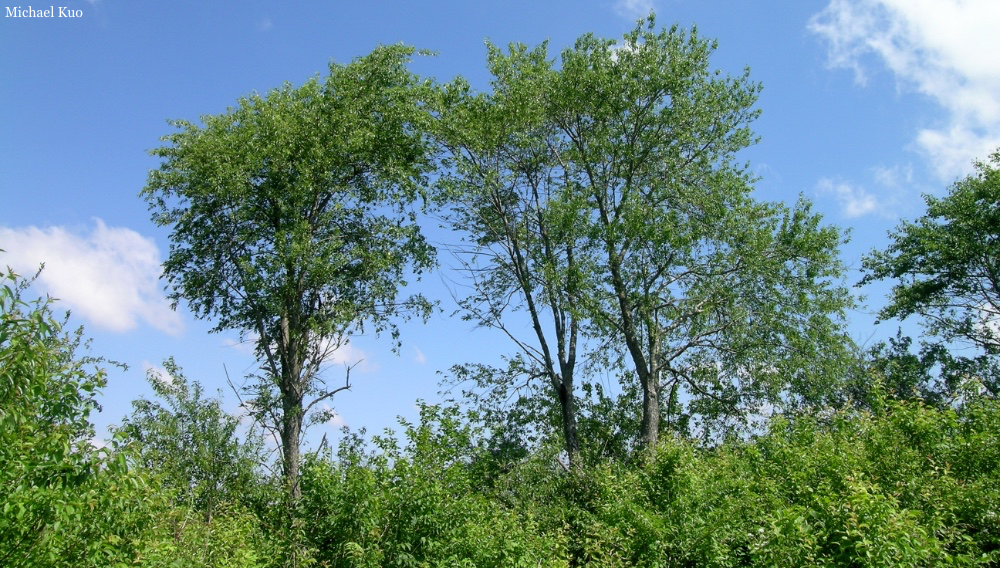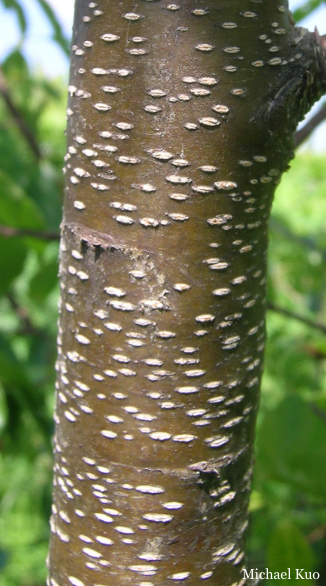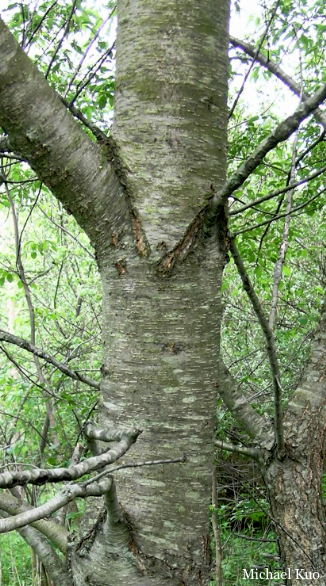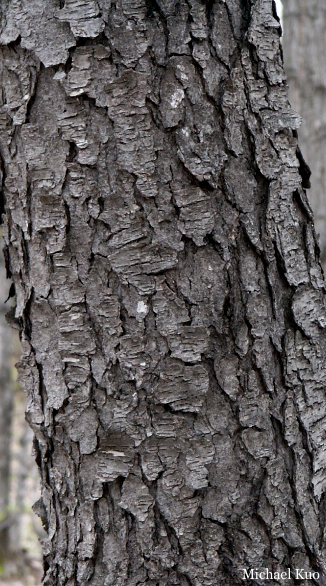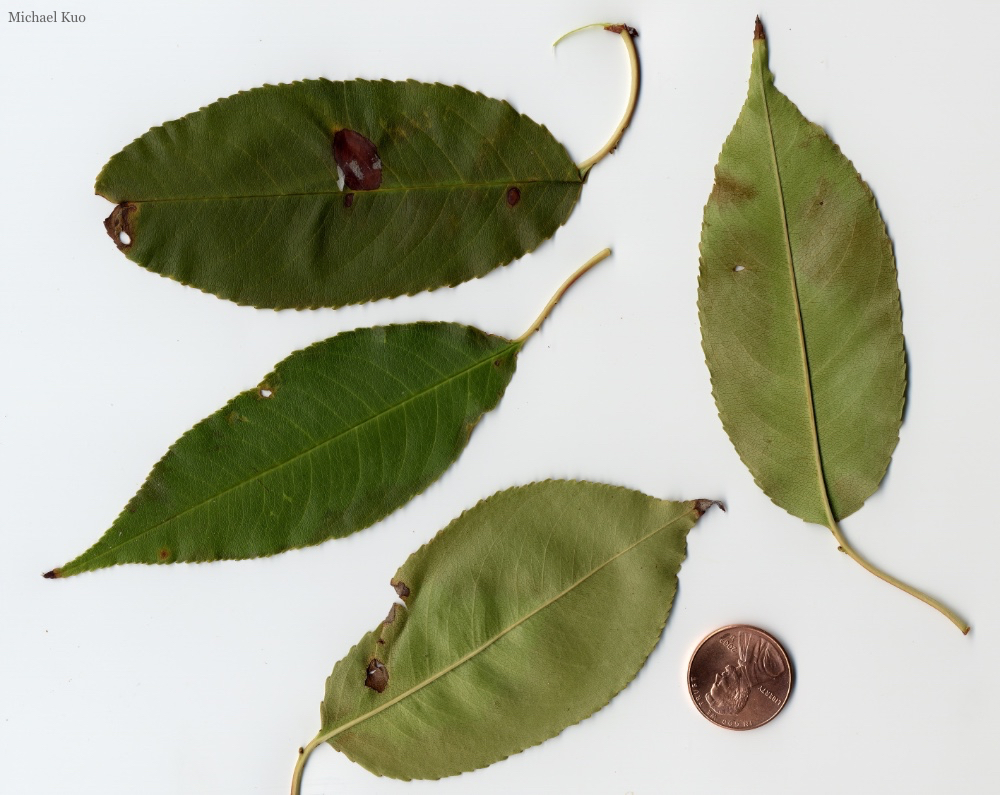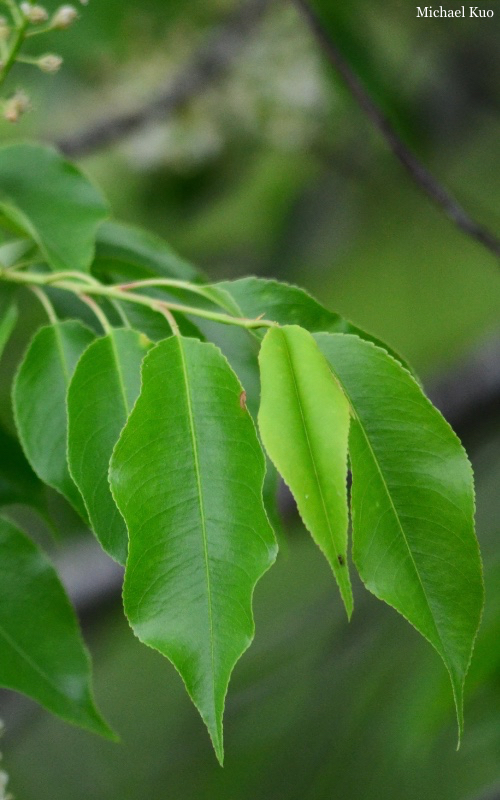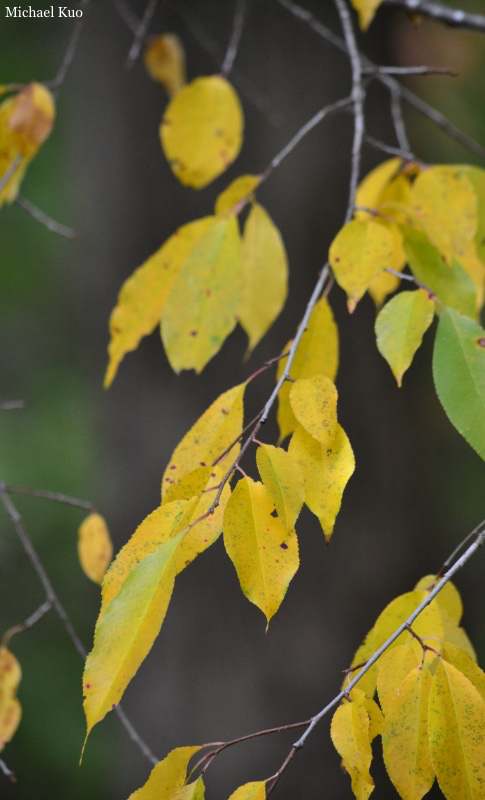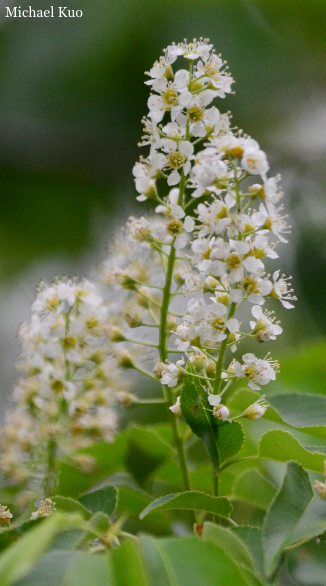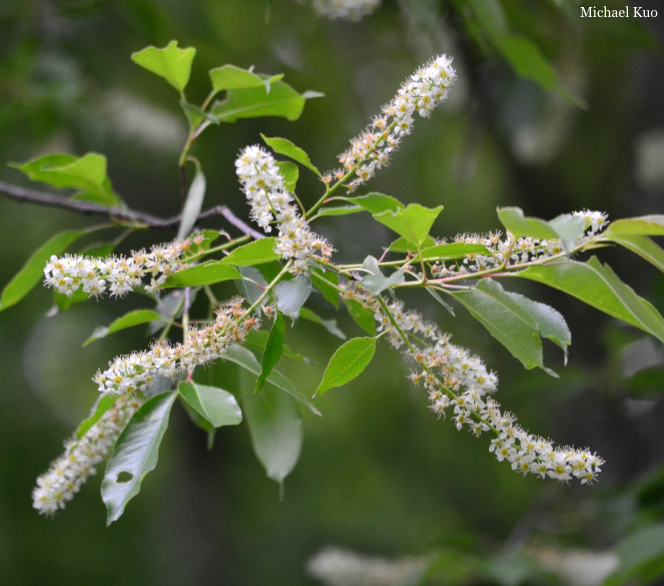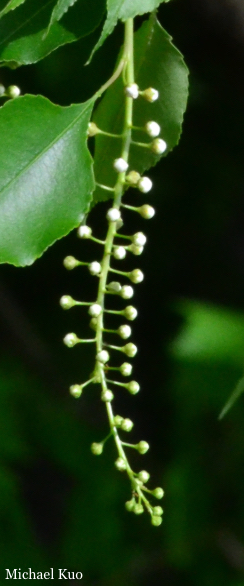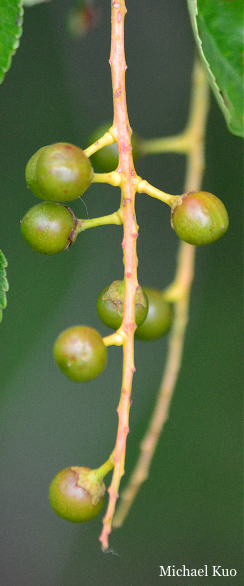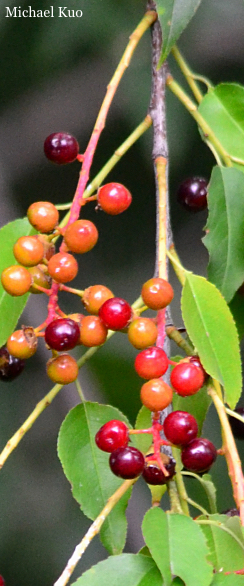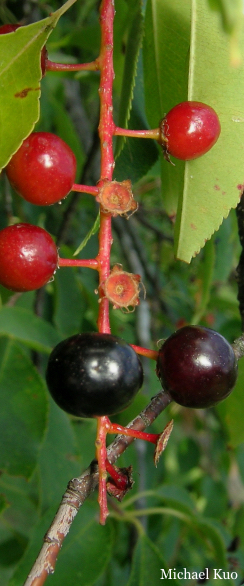 Prunus serotina (black cherry) |
|
Black cherry, Prunus serotina, is found throughout the Midwest. The tree is an avid colonizer of old fields and waste areas, where young trees with smooth and papery, reddish brown bark are often among the first trees to appear in the succession of organisms that leads, over time, to a mature forest. In mature woods, however, fully grown black cherry trees look very different, with dark gray bark that is broken up into distinctive scaly plates. The simple, alternate leaves have finely toothed edges, and often feature fine reddish brown hairs on the underside, along the middle vein. Racemes of small white flowers appear in the spring, and are eventually replaced by small fruits that progress with the summer from green, to red, to black. According to our sources the cherries produced by this tree are seriously poisonous, along with the leaves and twigs, containing hydrocyanic acid. |
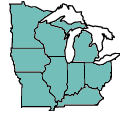 midwestern range |
|
|
|
|
|
|
|
|
|
|
|
|
|
|
|
|
|
|
|
